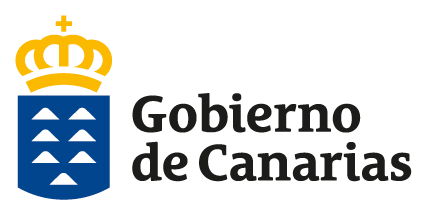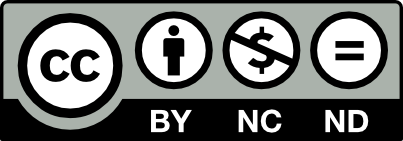Los usos de la inteligencia artificial en el sector público, su variable impacto y categorización jurídica
DOI:
https://doi.org/10.36151/RCAP.2023.7Palabras clave:
inteligencia artificial, algoritmos, administración, gobierno, derechos fundamentalesResumen
Se considera oportuno un concepto de inteligencia artificial (IA) más amplio para sistemas automatizados, algorítmicos en el sector público. Se describen los habituales usos y finalidades públicos de la IA en la UE y EEUU. Se estudian las variables que determinan el impacto, nivel de riesgo y relevancia jurídica de los sistemas algorítmicos públicos: relevancia del uso y concreto ámbito de actuación, grado de individualización de las decisiones y usos para elaboración de políticas o regulaciones, calificación de “alto riesgo”, uso masivo y a escala. Se presta especial atención a la mayor o menor automatización de la actuación administrativa. El análisis se centra en la difícil categorización jurídica, de un lado, de las acciones administrativas de adopción, diseño y desarrollo de sistemas IA públicos y su contratación y se analiza también el grado de uso de normas y de legalidad exigible. Del otro lado, se analiza la categorización e impugnabilidad del uso y los efectos de los algoritmos públicos y se apuesta por la necesidad de superar ciertos formalismos.
Descargas
Referencias
Barona Vilar, Silvia (2021): Algoritmización del derecho y de la justicia: De la inteligencia artificial a la Smart Justice, Tirant lo Blanch, 2021.
Boix Palop, A. (2020): “Los algoritmos son reglamentos: la necesidad de extender las garantías propias de las normas reglamentarias a los programas empleados por la administración para la adopción de decisiones”, en Revista de Derecho Público: Teoría y Método, Vol. 1, 2020.
Bueno de Mata, Federico (dir.) (2022): El impacto de las tecnologías disruptivas en el derecho procesal, Aranzadi Thomson Reuters
Cavallo Perin R. y Alberti I. (2020): Atti e procedimenti amministrativi digitali, en Il diritto dell'amministrazione pubblica digitale, Giappichelli, Turín.
CEPD-SEPD (2021): Dictamen conjunto 5/2021 sobre la propuesta de Reglamento del Parlamento Europeo y del Consejo por el que se establecen normas armonizadas en materia de inteligencia artificial (Ley de Inteligencia artificial).
Cerrillo i Martínez, Agustí (2022): “La personalización de servicios digitales”, en Cerrillo i Martínez, Agustí (coord.) La Administración Digital, Dykinson, Madrid, 311-370.
Citron, D. K. (2008): “Technological Due Process”, 85 Wash. U. L. Rev. 1249-1313.
Comisión Europea- TRASYS International (2020): Study on the use of innovative technologies in the justice field. Final report, Unión Europea, Luxemburgo.
Comisión Europea, Renda A. (2021): Study to Support an Impact Assessment of Regulatory Requirements for Artificial Intelligence in Europe. Final Report (D5), abril 2021.
-Cotino Hueso, Lorenzo (2021): “Hacia la transparencia 4.0: el uso de la inteligencia artificial y big data para la lucha contra el fraude y la corrupción y las (muchas) exigencias constitucionales”, en Carles Ramió (coord.), Repensando la administración digital y la innovación pública, Instituto Nacional de Administración Pública (INAP), Madrid, 2021. https://links.uv.es/FUW2pz6
-(2022 a): “Nuevo paradigma en la garantías de los derechos fundamentales y una nueva protección de datos frente al impacto social y colectivo de la inteligencia artificial”, en Cotino Hueso, Lorenzo (editor), Derechos y garantías ante la inteligencia artificial y las decisiones automatizadas, Thompson-Reuters Aranzadi, FIADI (Federación Iberoamericana de Asociaciones de Derecho e Informática), Cizur.
-(2022 b): “Sistemas de inteligencia artificial con reconocimiento facial y datos biométricos. Mejor regular bien que prohibir mal", en El Cronista del Estado Social, IUSTEL, monográfico Inteligencia artificial, nº 100, septiembre-octubre, 68-79
- (2022 c): “Derechos ante la administración digital y la inteligencia artificial (XVIII Y XV)”, en Cotino Hueso, Lorenzo (editor), La Carta de Derechos Digitales, Tirant Lo Blanch, Valencia, 2022, 251-284.
-(2023): "Discriminación, sesgos e igualdad de la inteligencia artificial en el sector público", en Gamero Casado, Eduardo, (Dir.), Inteligencia artificial y sector público: retos, límites y medios, Tirant lo Blanch, Valencia.
Etalab (2022): Expliquer les algorithmes publics.
Fernández Salmerón Manuel (2004): La protección de los datos personales en las Administraciones Públicas, Aranzadi, Cízur, 465- 470.
Freeman Engstrom, D. y otros (2020): “Government by Algorithm: Artificial Intelligence in Federal Administrative Agencies. Report submitted to the Administrative conference of the United States”, NYU School of Law, Public Law Research Paper No. 20-54, 122 págs.
Galetta, Diana U. (2022): “Derechos y garantías concretas respecto del uso por los poderes públicos decisiones automatizadas- inteligencia artificial”, en Cotino Hueso, Lorenzo (editor), Derechos y garantías ante la inteligencia artificial y las decisiones automatizadas, Thompson-Reuters Aranzadi, FIADI (Federación Iberoamericana de Asociaciones de Derecho e Informática), Cizur.
Grupo del artículo 29 (2018): Directrices sobre decisiones individuales automatizadas y elaboración de perfiles a los efectos del Reglamento 2016/679. 3 de octubre de 2017 y revisadas el 6 de febrero de 2018.
Gutiérrez David, María E. (2021): “Administraciones inteligentes y acceso al código fuente y los algoritmos públicos. Conjurando riesgos de cajas negras decisionales”, en Derecom, nº 31, págs. 19-105, 29-30, 2021, http://www.derecom.com/derecom/
Hermstrüwer, Y. (2020): “Artificial Intelligence and Administrative Decisions Under Uncertainty”, en Wischmeyer, T y Rademacher. T. (ed.), (2020): Regulating Artificial Intelligence, Springer, 2020.
Hernández Peña, Juan Carlos (2022): El marco jurídico de la inteligencia artificial. Principios, procedimientos y estructuras de gobernanza, Aranzadi, Cízur.
HLEG (2019): A definition of AI: main capabilities and disciplines, Independent High-Level Expert Group On Artificial Intelligence, European Commission.
Huergo Lora, Alejandro J. (2020): “Una aproximación a los algoritmos desde el derecho administrativo”, en Huergo Lora, Alejandro . J. (dir.), Díaz González, Gustavo M. (coord.) La regulación de los algoritmos, Aranzadi Thomson Reuters, Cízur, 2020, p. 77.
Huergo Lora, Alejandro. J. (2021): “Administraciones Públicas e inteligencia artificial: ¿más o menos discrecionalidad?”, El Cronista del Estado Social y Democrático de Derecho, nº 96-97, 2021, 78-95.
Jiménez López, Jesús (2022): “Oscuridad algorítmica en el sector público”, en Vestri, Gabriele (coord.): La disrupción tecnológica en la Administración pública. Retos y desafíos de la inteligencia artificial. Thomson Reuters-Aranzadi, 41-66.
Joh, E. E. (2017): “The Undue Influence of Surveillance Technology Companies on Policing” (27 febrero). N.Y.U. L. Review Online, 18-20 https://ssrn.com/abstract=2924620
JRC-AI Watch, Estévez Almenzar, M. y otros (2022): Glossary of human-centric artificial intelligence, JRC-Unión Europea.
JRC, Misuraca, G. (2020): AI Watch. Artificial Intelligence in public services. Overview of the use and impact of AI in public services in the EU, Joint Research Centre, Unión Europea.
JRC, Samoili, S. y otros (2021): AI Watch. Defining Artificial Intelligence 2.0, Unión Europea, Luxembourg.
JRC, Tangi, L. y otros (2022): AI Watch European landscape on the use of Artificial Intelligence by the Public Sector, JRC Science For Policy Report, Unión Europea.
Loza Corera, María (2022): “Explotación y regulación del uso del big data e inteligencia artificial para los servicios públicos y la ciudad inteligente”, en Cotino Hueso, L. y Todolí Signes, A. (coord.), Explotación y regulación del uso del big data e inteligencia artificial para los servicios públicos y la ciudad inteligente, Tirant lo Blanch, Valencia, 125-148.
Mantelero, Alessandro (2022): Beyond Data. Human Rights, Ethical and Social Impact Assessment, Springer, Information Technology and Law Series IT&LAW 36, 2022.
Martín Delgado, I. (2009): “Naturaleza, concepto y régimen jurídico de la actuación administrativa automatizada”, Revista de administración pública, nº 180, 353-386.
Moral Soriano, L. (2022): “Inteligencia artificial y filosofía del derecho decisiones automatizadas, derecho administrativo y argumentación jurídica”, en Llano Alonso F. H. (dir.), Inteligencia artificial y filosofía del derecho, Laborun, Madrid, 475-498.
Nieva Fenoll, Jordi (2018): Inteligencia artificial y proceso judicial, Marcial Pons.
OCDE (2019a): Recommendation of the Council on Artificial Intelligence, de 22 de mayo de, OECD/LEGAL/0449, adopted by the OECD Council at Ministerial level.
OCDE, Barbara Ubaldi y otros (2019b): State of the art in the use of emerging technologies in the public sector, OECD Working Papers on Public Governance No. 31.
Palma Ortigosa, Adrián (2022): Decisiones automatizadas y protección de datos personales. Especial atención a los sistemas de inteligencia artificial, Dykinson, 2022.
Palumbo, Salvatore (2022a): “Algoritmo y transparencia de la administración pública en el ordenamiento jurídico italiano. Algunas reflexiones críticas a partir del caso “Buona Scuola”, L. Cotino Hueso y J. Castellanos (coords.), Transparencia y explicabilidad de la inteligencia artificial, Tirant lo Blanch, Valencia.
Palumbo, Salvatore (2022b): La partecipazione dei cittadini all’azione amministrativa, nell’era dell’amministrazione digitale, Universidad de Valencia, Tesis doctoral, 2022, dirigida por Maria Cristina Cavallaro y Lorenzo Cotino.
Roehl, U. (2022): “Understanding Automated Decision-Making in the Public Sector: A Classification of Automated, Administrative Decision-Making”, en Juell-Skielse, G. y otros (eds.), Service Automation in the Public Sector. Progress in IS. Springer, Cham, 35-63,
Simón Castellano, Pere (2021): Justicia cautelar e inteligencia artificial. La alternativa a los atávicos heurísticos judiciales. Barcelona: J. M. Bosch Editor,
Simón Castellano, Pere (2022): La prisión algorítmica. Prevención, reinserción social y tutela de derechos fundamentales en el paradigma de los centros penitenciarios inteligentes. Valencia, Tirant lo Blanch.
Soriano Arnanz, Alba. (2021): “Decisiones automatizadas y discriminación: aproximación y propuestas generales”, Revista General de Derecho Administrativo (Iustel, enero 2021) nº 56.
Valero Torrijos, J. (2007): El régimen jurídico de la e-Administración. El uso de los medios informáticos y telemáticos en el procedimiento administrativo común, 2.ª ed., Comares, Granada.
Valero Torrijos, J. (2015): “Ciudades inteligentes y datos abiertos: implicaciones jurídicas para la proteccion de los datos de carácter personal”, Istituzioni del federalismo: rivista di studi giuridici e politici, nº. 4, 2015 (“Smart Cities” e amministrazioni intelligenti), 1025-1047
Valero Torrijos, Julián (2013): Derecho, innovación y administración electrónica, Global Law = Derecho Global, Sevilla.
Vestri, Gabriele (2021): “Sistemas de inteligencia artificial en la contratación pública: entre códigos fuente y datos abiertos”, Actualidad administrativa, nº 12.
Zlotnik, Alexander (2019): “Inteligencia Artificial en las Administraciones Públicas: definiciones, evaluación de viabilidad de proyectos y áreas de aplicación”, Boletic, núm. 84, 27-28.
Publicado
Número
Sección
Licencia
Derechos de autor 2023 Revista Canaria de Administración Pública

Esta obra está bajo una licencia internacional Creative Commons Atribución-NoComercial-SinDerivadas 4.0.







